Paris attacks: what we know so far
Investigators in France, Belgium, Greece and Germany are trying to find out more information on the seven attackers
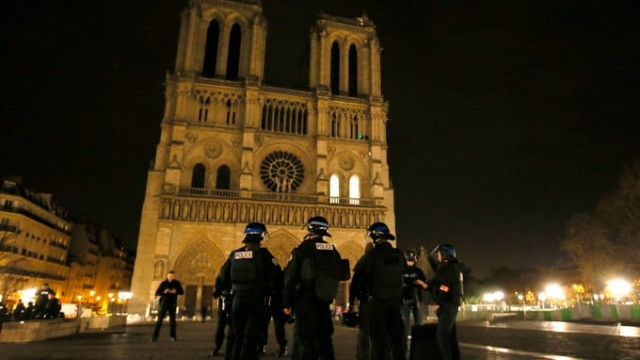
Police patrol near Notre Dame Cathedral in Paris following the attacks. PHOTO: REUTERS
The Islamic State has claimed the carnage carried at some of the French capital's most popular night-spots, including a sold-out concert hall, at restaurants and bars and outside France's national stadium.
The seven attackers -- six blew themselves up and one was shot by police -- are the first to ever carry out suicide bombings on French soil and, unlike those who killed 17 in Paris in January, were unknown to security services.
Paris shootings, explosions leave at least 128 dead
Investigators in France, Belgium, Greece and Germany are now trying to find out who these men were, how they carried out such a vast coordinated attack, and why.
FRANCE
Police have identified one of the gunmen who blew himself up at the Bataclan concert hall, the scene of the bloodiest attack where 89 people were killed, as 29-year-old Paris native Omar Ismail Mostefai.
His father and 34-year-old brother have been taken into custody by police and a source close to the probe said investigators are now searching the homes of other friends and relatives of the killer.
Mostefai, whose identity was confirmed using a severed fingertip, was known as being close to radical Islam, but had never been linked to terrorism.
Police said the attackers appeared to be "seasoned, at first sight, and well trained" and were investigating whether they had ever been to fight in Syria, where IS has proclaimed a caliphate along with territory in neighbouring Iraq.
Muslims all over the world condemn terrorism, express solidarity with French
The Paris attacks were "prepared, organised and planned overseas, with help from inside (France)," French President Francois Hollande said.
BELGIUM
Belgian police have arrested several people over links to the Paris attacks in a huge sweep, including one who was in the French capital at the time of the attacks.
Justice Minister Koen Geens said the arrests were in connection with a grey Polo that had been rented in Belgium that was found near the Bataclan concert hall.
The arrests -- local media said three people had been detained -- took place in the poor Brussels district of Molenbeek that has been linked to several other terror plots in Europe.
Police in Belgium, which has the highest number of citizens per-capita who have gone to fight for IS in Europe, have opened a formal terrorism investigation.
Islamic State claims responsibility for Paris attacks
Paris prosecutor Francois Molins separately said one of the vehicles used in Friday's attacks was registered in Belgium and hired by a French national living there.
Witnesses in Paris said some attackers arrived in a car with Belgian plates.
GREECE
Greek authorities have confirmed that a man who died in the attacks with a Syrian passport found next to him had registered as a refugee on the of island of Leros in October.
French police said the passport was found "near the body of one of the attackers" after the Bataclan carnage, and had also asked Greece to check on the fingerprints of another man.
Earlier information from a Greek police source that he too had registered on Leros was later refuted.
The passport is still being checked, but it indicates the attackers may have had links to Syria and could have been among the thousands of people that have fled the country's civil war for Europe.
‘Scene of Carnage’ inside sold-out Paris concert hall
GERMANY
German police arrested a man on November 5 after machine-guns, hand guns and explosives were found in his vehicle during a routine check on a motorway.
Bavaria's state premier Horst Seehofer said there was reason to believe he had links to the attackers, and that the case "shows how important it is for us to have some clarity on who is in our country".
But Germany's Interior Minister Thomas de Maiziere rejected the link, and made an "urgent plea to avoid drawing such swift links to the situation surrounding refugees".

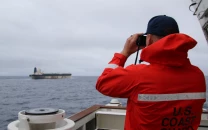



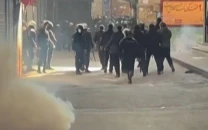
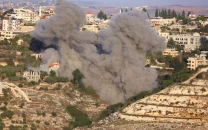





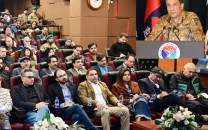






COMMENTS
Comments are moderated and generally will be posted if they are on-topic and not abusive.
For more information, please see our Comments FAQ